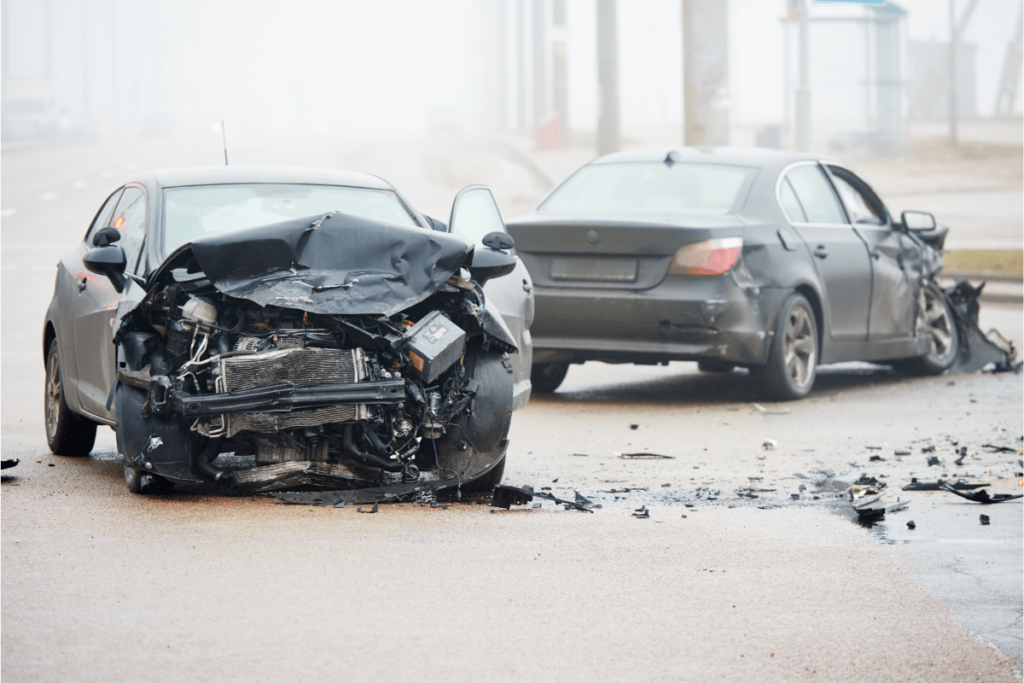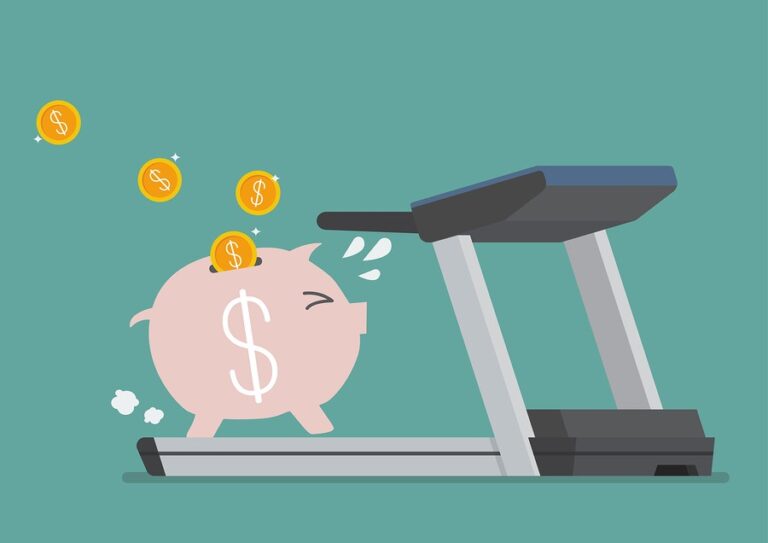Being involved in a car accident can be a traumatic experience, leaving you shaken and uncertain about the next steps.
Understanding how to navigate the aftermath is crucial for securing your rights and obtaining the necessary support. Whether you’re dealing with insurance companies or seeking medical attention for personal injury, knowing what to expect can significantly reduce stress and anxiety.
As you move forward, it’s essential to be informed about the process of filing car accident claims and the importance of seeking professional help when needed.
Key Takeaways
- Understand your rights after a car accident
- Learn how to file car accident claims
- Get informed about personal injury support
- Know the importance of seeking professional help
- Reduce stress and anxiety by being prepared
The Critical First Steps After a Collision
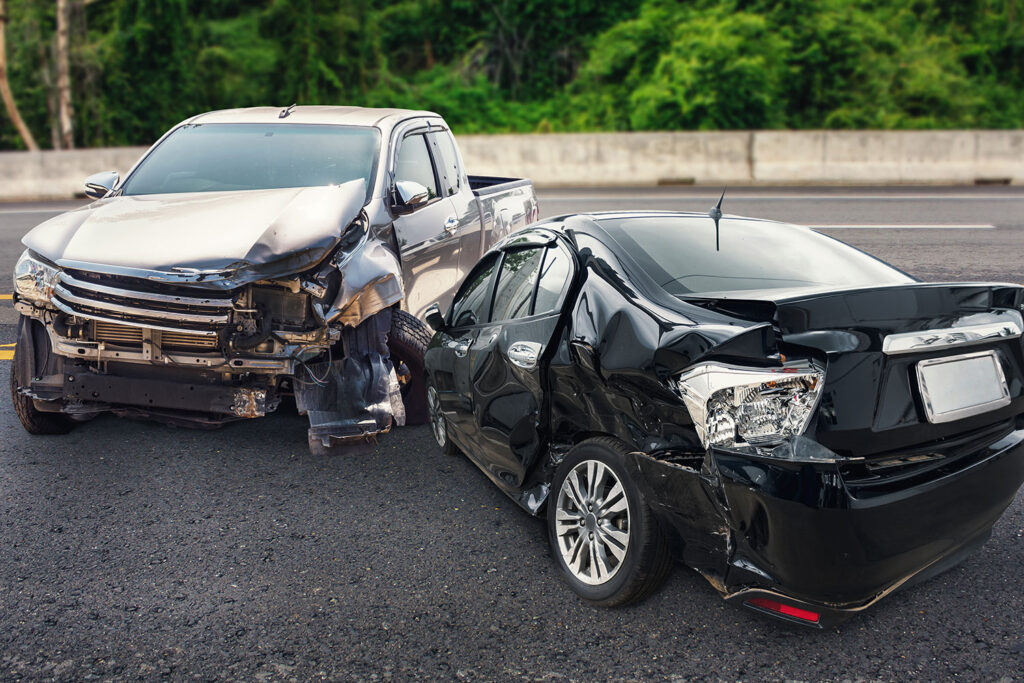
In the chaotic moments following a car collision, prioritizing safety and following the correct protocol is vital. This not only ensures the well-being of everyone involved but also lays the groundwork for any subsequent insurance claims or legal actions.
Ensuring Safety at the Scene
The first priority after a car accident is to ensure safety. Move to a safe location if the accident happened on a busy road, and turn on hazard lights to alert other drivers. Check for injuries and provide assistance if needed.
When to Call Emergency Services
If there are injuries or significant damage, it’s crucial to call emergency services. Even if the accident seems minor, involving the police can be beneficial for insurance claims and determining fault. Emergency services can also provide immediate medical attention if needed.
- Call 911 or your local emergency number.
- Provide clear information about the location and nature of the accident.
- Follow instructions given by the emergency operator.
Communicating with Other Involved Parties
Exchange information with the other parties involved, including names, contact details, and insurance information. Be cooperative but avoid admitting fault. It’s also helpful to document the scene and any damage with photos. This information can be invaluable when dealing with accident lawyers or insurance companies.
- Exchange contact and insurance information.
- Document the scene and damage.
- Note any witness statements or contact information.
Understanding Your Legal Obligations After Car Accidents
After a car accident, understanding your legal obligations is crucial for avoiding potential legal issues. The legal responsibilities that follow a car accident can be complex and vary significantly by jurisdiction.
Reporting Requirements by State
Each state has its own set of rules regarding the reporting of car accidents. Generally, accidents involving significant property damage, injuries, or fatalities must be reported to the local authorities. For instance, some states require reporting if the damage exceeds a certain threshold, typically ranging from $500 to $2,000. It’s essential to familiarize yourself with the specific reporting requirements in your state to avoid any potential legal repercussions.
The Consequences of Leaving the Scene
Leaving the scene of an accident, also known as a hit-and-run, can lead to severe legal consequences. “The penalties can include hefty fines, license suspension, and even imprisonment, depending on the severity of the accident.” As stated by a legal expert, “Fleeing the scene of an accident not only complicates the process of determining fault but also puts the lives of those involved at greater risk.” The consequences can be even more dire if the accident involves injuries or fatalities.
Information Exchange Requirements
After a car accident, it’s crucial to exchange information with the other parties involved. This typically includes names, contact details, insurance information, and vehicle registration. Failing to provide this information can lead to legal issues, including being charged with a hit-and-run. Ensuring that you gather and provide the necessary information can help in facilitating the claims process and avoiding potential legal complications.
If you’re dealing with the aftermath of a car accident and are concerned about your legal obligations or need assistance with car accident compensation, consulting with experienced car accident lawyers can provide you with the necessary guidance and support.
Essential Documentation to Gather at the Accident Scene
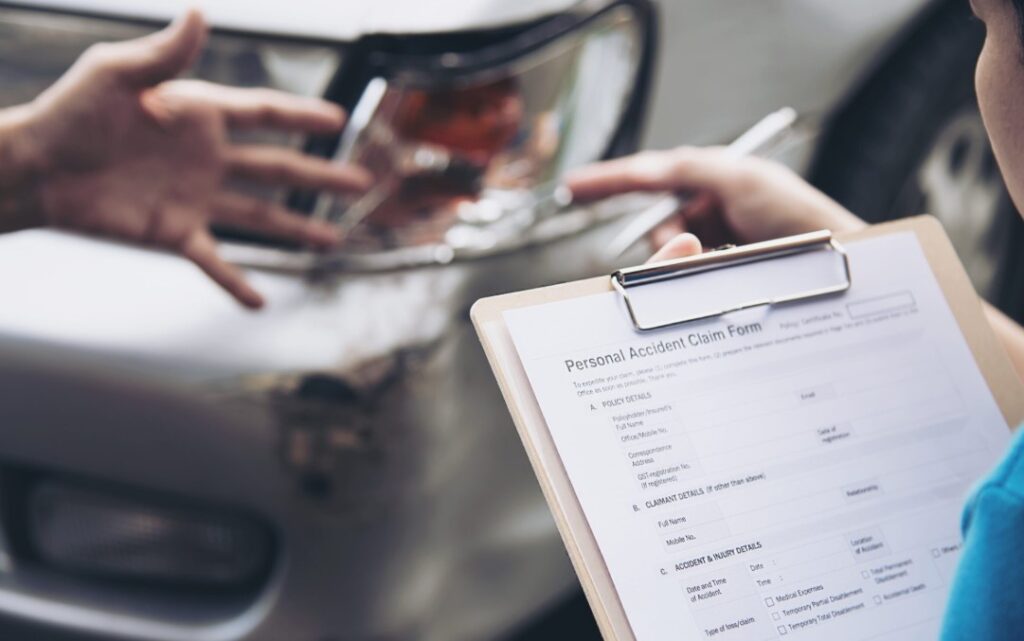
Gathering the right documentation at the accident scene is crucial for a smooth accident claim process. The information you collect can significantly impact the outcome of your claim and help you navigate the complexities of dealing with insurance companies and, potentially, personal injury lawyers.
Collecting Driver and Witness Information
One of the first steps after ensuring everyone’s safety is to collect information from the other drivers involved. This includes their name, contact details, driver’s license number, and insurance information. It’s also beneficial to gather information from witnesses who saw the accident. Their statements can provide valuable support for your claim.
Taking Effective Photos and Videos
Capturing photos and videos of the accident scene can provide critical evidence. Take pictures of the vehicles involved, the surrounding area, and any visible injuries. It’s also helpful to record the weather and lighting conditions at the time of the accident. This visual documentation can help establish the circumstances surrounding the accident.
Police Report Essentials
When the police arrive, they will create a report that includes details about the accident. This report is a crucial piece of documentation for your claim. Ensure you obtain a copy of the police report, as it can provide an objective account of what happened and may include information about who was at fault.
Creating Your Own Accident Record
In addition to the information collected from others, it’s a good idea to create your own record of the accident. Write down your account of what happened, including the time, location, and any details about the accident that you remember. This personal record can help you keep track of the facts and provide a clear narrative for your claim.
Seeking Medical Attention ─ Why It’s Non-Negotiable
After a car accident, your health is the top priority, and seeking medical attention is not just a recommendation, it’s a necessity. The shock of the accident can mask symptoms of injuries, and some conditions may not be immediately apparent.
Hidden Injuries That May Surface Later
Some injuries, such as whiplash or internal bleeding, may not show symptoms right away. These hidden injuries can surface days or even weeks after the accident, causing significant discomfort and potentially leading to more serious health issues.
- Soft tissue injuries
- Concussions or other head injuries
- Internal injuries
How Medical Records Support Your Claim
Medical records play a crucial role in supporting your insurance claim or legal case after a car accident. They provide a documented link between the accident and your injuries, which is essential for securing compensation after a car accident.
These records detail your injuries, the treatment you received, and any ongoing care you may need. This information is vital for insurance companies and legal professionals to assess the impact of the accident on your life.
Following Through with Treatment Plans
Once you’ve received medical attention, it’s essential to follow through with the recommended treatment plan. This not only aids in your recovery but also demonstrates your commitment to your health and well-being, which can be beneficial if you’re filing a claim.
Ignoring or deviating from your treatment plan can lead to complications and potentially weaken your claim.
Mental Health Considerations After an Accident
The impact of a car accident isn’t limited to physical injuries. Many people experience anxiety, depression, or PTSD after an accident. Seeking mental health support is just as important as treating physical injuries.
Navigating Insurance Claims After an Accident
Understanding how to navigate insurance claims is essential for anyone involved in a car accident. The process can be complex, but knowing the steps involved can make it more manageable.
Reporting to Your Insurance Company
After an accident, it’s crucial to report the incident to your insurance company promptly. Most insurance policies require policyholders to notify them within a certain timeframe. Failure to do so might result in delayed or denied claims. When reporting, provide as much detail as possible about the accident, including the date, time, location, and parties involved.
Dealing with the Other Driver’s Insurer
When dealing with the other driver’s insurance company, it’s essential to be cautious. Their adjuster may contact you to discuss the accident. Be polite but avoid making any statements that could be interpreted as admitting fault. It’s often advisable to direct the other driver’s insurer to your insurance company or to consult with your insurance provider before making any statements.
Understanding Coverage Limitations
It’s vital to understand what your insurance policy covers and what it doesn’t. Coverage limitations can significantly impact your claim. For instance, if you have a deductible, you’ll need to pay that amount before your insurance covers the rest. Understanding these details can help you manage your expectations and plan accordingly.
Common Insurance Claim Mistakes to Avoid
When filing an insurance claim, avoid common mistakes such as failing to document the accident scene properly, not reporting the accident to the police, or neglecting to follow up with your insurance company. Being thorough and proactive can significantly improve the outcome of your claim. Additionally, avoid making statements that could be seen as admitting fault without consulting your insurance provider or a legal professional.
Vehicle Repairs and Property Damage Claims

Managing the aftermath of a car accident involves navigating vehicle repairs and insurance claims. This process can be complex, but understanding the steps involved can help streamline it.
Getting Accurate Repair Estimates
To ensure fair compensation for vehicle repairs, it’s crucial to obtain accurate repair estimates. This involves gathering quotes from reputable auto repair shops and documenting the damage thoroughly. Detailed estimates should include parts, labor, and any additional costs.
Here’s an example of what a repair estimate table might look like:
| Service | Cost | Notes |
| Body Work | $1,500 | Includes repainting |
| Engine Repair | $800 | Replacement of damaged parts |
| Total | $2,300 |
Rental Car Coverage During Repairs
Many insurance policies include rental car coverage, which can help you get back on the road while your vehicle is being repaired. It’s essential to review your policy to understand the extent of this coverage. Typically, it includes the cost of a rental car for a specified period.
When Your Vehicle Is Declared a Total Loss
If your vehicle is declared a total loss, the insurance company will typically provide a settlement based on its actual cash value. Understanding how this value is determined can help you navigate the claims process more effectively. Factors influencing this value include the vehicle’s age, condition, and market value.
When to Hire a Car Accident Attorney
If you’ve been involved in a car accident, understanding the role of a car accident attorney can significantly impact your recovery process. The aftermath of an accident can be overwhelming, with medical bills, insurance claims, and potentially lost wages adding to the stress.
Signs You Need Legal Representation
Certain situations necessitate the expertise of a personal injury lawyer. If you’re dealing with severe injuries, disputed fault, or uncooperative insurance companies, it’s time to consider legal representation. Other signs include complex accident scenarios involving multiple parties or significant property damage.
What to Look for in a Personal Injury Lawyer
When selecting a personal injury lawyer, experience and a proven track record are crucial. Look for attorneys who specialize in car accident cases and have a history of successful claims. Their expertise can significantly influence the outcome of your case.
Understanding Attorney Fee Structures
Most car accident attorneys work on a contingency fee basis, meaning they only get paid if you win your case. This structure can vary, so it’s essential to understand the fee arrangement before hiring an attorney.
How Attorneys Strengthen Your Claim
An experienced attorney can strengthen your claim by gathering and analyzing evidence, negotiating with insurance companies, and representing you in court if necessary. Their expertise ensures that your rights are protected and that you receive the compensation you deserve.
Types of Compensation Available to Accident Victims

Car accident victims often face significant expenses, but several forms of compensation can help alleviate the financial burden. Understanding the types of compensation available is crucial for navigating the aftermath of an accident.
Medical Expenses and Rehabilitation Costs
Victims can claim compensation for medical expenses related to the accident, including hospital stays, surgeries, and rehabilitation costs. This also covers future medical expenses if the victim requires ongoing treatment.
Lost Wages and Diminished Earning Capacity
Accident victims may also be entitled to compensation for lost wages due to their inability to work following the accident. Additionally, if the victim’s earning capacity is diminished due to injuries sustained, they can claim for this loss as well.
Pain and Suffering Compensation
Pain and suffering, including emotional distress, are also compensable. The amount awarded can vary significantly based on the severity of the injuries and the impact on the victim’s quality of life.
Long-term Care and Life Adjustments
In cases where accidents result in long-term disabilities, victims may require ongoing care and adjustments to their living conditions. Compensation can cover these long-term needs, ensuring the victim’s quality of life is maintained as much as possible.
Understanding the full scope of compensation available can help accident victims plan for their future and ensure they receive the financial support they need to recover fully.
Navigating Fault Determination in Multi-Vehicle Accidents
Understanding how fault is determined in multi-vehicle accidents is essential for navigating the complexities of insurance claims and legal proceedings. The process involves analyzing various factors, including the laws of the state where the accident occurred.
No-Fault vs. At-Fault States
The distinction between no-fault and at-fault states significantly affects how car accident claims are handled. In no-fault states, drivers are required to carry insurance that covers their expenses regardless of who was at fault. Conversely, at-fault states require determining who was responsible for the accident to assign financial liability.
“The no-fault system is designed to reduce litigation and ensure that accident victims receive timely compensation,” as noted by insurance experts.
Comparative and Contributory Negligence
Comparative negligence is a principle used in many states, where the fault is allocated among parties involved based on their degree of responsibility. This affects the compensation each party can claim. On the other hand, contributory negligence is a stricter rule used in fewer states, where a party found to be even partially at fault may be barred from recovering damages.
The Role of Traffic Laws in Determining Liability
According to lawyers at Smith McBroom, traffic laws play a crucial role in determining liability in multi-vehicle accidents. Violating traffic laws can be used as evidence to establish fault. For instance, running a red light or speeding can be considered negligence. Understanding these laws and how they apply to the accident is vital for a successful car accident claim.
Conclusion
After a car accident, navigating the aftermath can be overwhelming. Understanding the steps to take and knowing your rights can significantly impact the outcome of your personal injury claim.
A car accident can result in significant financial burdens, emotional distress, and physical harm. Being prepared and knowledgeable about the process can help alleviate some of the stress associated with the experience.
By following the guidelines outlined in this article, you can better protect your interests and ensure a smoother recovery process. Whether it’s dealing with insurance claims, seeking medical attention, or understanding your legal obligations, being informed is key.
If you’ve been involved in a car accident, consider consulting with a personal injury attorney to discuss your options and determine the best course of action for your specific situation.
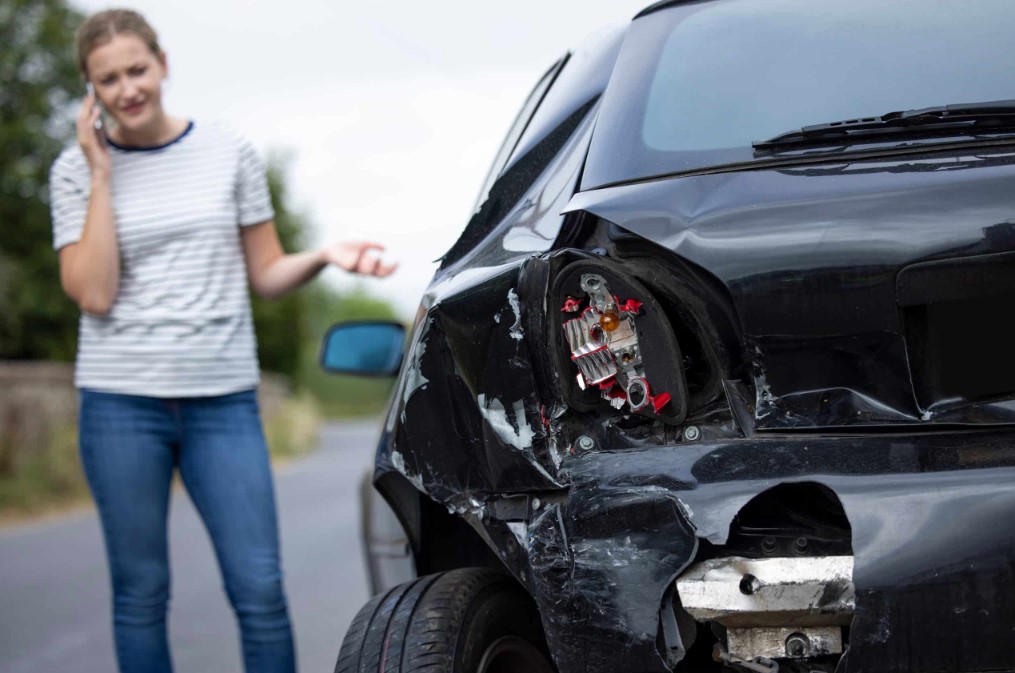
FAQ
What should I do immediately after a car accident?
After a car accident, ensure your safety and the safety of others. Move to a safe location if possible, and call emergency services if there are injuries or significant property damage. Exchange information with the other parties involved, and document the scene with photos and videos.
How do I report a car accident to the police?
Reporting requirements vary by state, but generally, you should report the accident to the police if there are injuries, significant property damage, or if the other party is uncooperative. Provide the police with your account of the accident, and obtain a copy of the police report for your records.
What information should I gather at the accident scene?
At the accident scene, gather the names, contact information, and insurance details of all parties involved. Take photos and videos of the damage, the scene, and any relevant road signs or signals. Also, collect witness statements and contact information.
How do I deal with insurance companies after a car accident?
Notify your insurance company promptly after the accident, and provide them with the necessary documentation, including the police report and photos. When dealing with the other driver’s insurer, be cautious and avoid making statements that could be seen as admitting fault. Consider seeking guidance from a car accident attorney.
What types of compensation can I claim after a car accident?
You may be entitled to compensation for medical expenses, lost wages, pain and suffering, and property damage. The specific types and amounts of compensation vary depending on the circumstances of the accident and the laws in your state.
When should I hire a car accident attorney?
Consider hiring a car accident attorney if you’re unsure about the claims process, if you’re dealing with significant injuries or property damage, or if the other party is uncooperative. An attorney can help you navigate the complex claims process and ensure you receive fair compensation.
What are the consequences of leaving the scene of an accident?
Leaving the scene of an accident can result in serious consequences, including fines, license suspension, and even criminal charges. It’s essential to stay at the scene and report the accident to the police.
How do I determine fault in a multi-vehicle accident?
Determining fault in a multi-vehicle accident can be complex, involving factors such as traffic laws, witness statements, and the police report. Insurance companies and courts may use various methods, including comparative and contributory negligence, to determine liability.
What is the difference between no-fault and at-fault states?
In no-fault states, drivers typically file claims with their own insurance company, regardless of who was at fault. In at-fault states, the driver responsible for the accident is liable for the damages. The laws and regulations surrounding no-fault and at-fault states can significantly impact the claims process.
How can I ensure I receive fair compensation for my car accident claim?
To ensure fair compensation, gather thorough documentation, including medical records, witness statements, and photos. Be cautious when dealing with insurance companies, and consider seeking guidance from a car accident attorney to help navigate the claims process.

